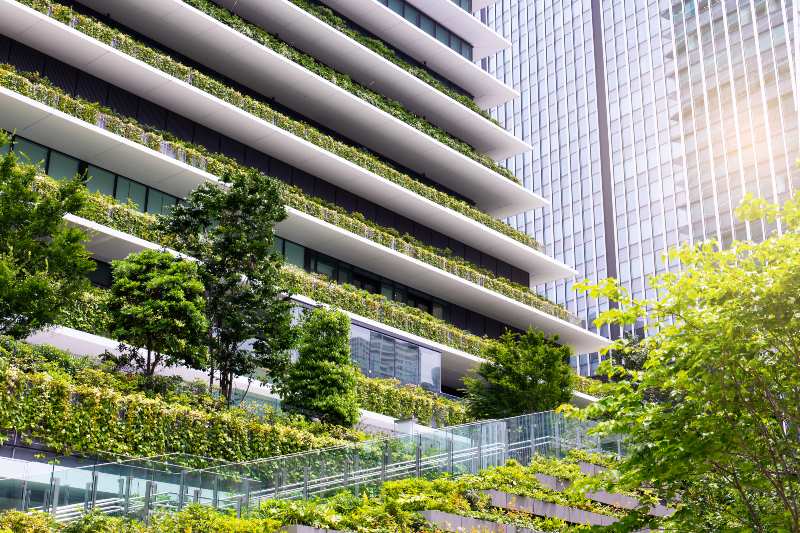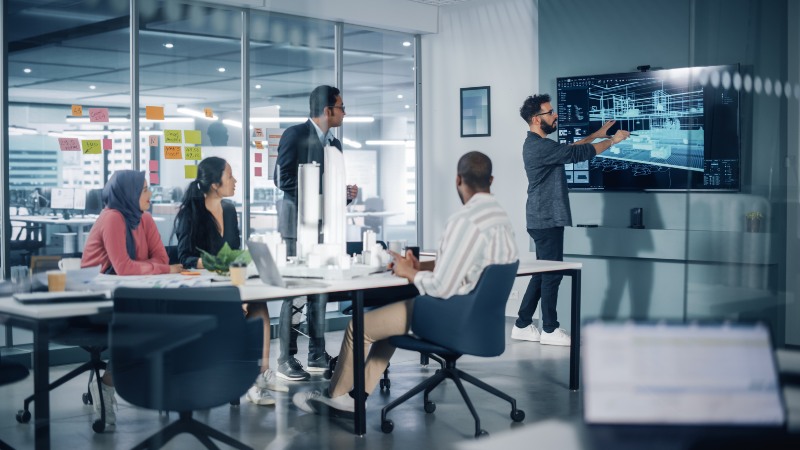The Sustainable Building Revolution

Sustainable Building: A Developing Practice
The construction industry stands at the cusp of a transformative revolution, driven by sustainability and environmental stewardship. Sustainable building, an approach that seeks to minimize the ecological impact of buildings through efficient use of resources, energy, and development space, is gaining extraordinary momentum. This evolution in construction philosophy underscores why eco-friendly construction is not merely a trend but the future of the industry. This article explores the multifaceted aspects of sustainable construction, from practices and materials to the broader effects on environmental degradation and the exciting prospects that lie ahead.
Sustainable Construction Practices and Materials
Sustainable construction practices are methodologies and strategies aimed at reducing the environmental footprint of buildings and infrastructure. These practices cover the entire lifecycle of a building, from planning and design to construction, operation, maintenance, and eventually, demolition. Sustainable construction projects are characterized by the use of sustainable building materials such as recycled plastic, bamboo, reclaimed wood, and other renewable or recycled resources that are environmentally friendly, energy-efficient, and non-toxic.
Sustainable construction project management plays a crucial role in integrating these practices throughout the project lifecycle, ensuring that sustainability goals are met without compromising on quality or performance. This holistic approach requires the expertise of a sustainability consultant for construction projects, who guides the project team in selecting materials, employing construction methods, and designing energy-efficient systems that align with sustainability objectives.
Sustainable Design and Construction Strategies
The design phase is critical in sustainable building construction. It involves innovative strategies that reduce energy consumption, enhance water efficiency, and improve indoor environmental quality. These strategies include site selection and orientation to maximize natural light and ventilation, the incorporation of green roofs and walls to improve insulation and reduce heat island effects, and the integration of renewable energy sources such as solar panels.
Sustainable project management in construction ensures that these design principles are effectively implemented during construction. This involves careful coordination of resources, efficient waste management, and the minimization of the construction footprint through off-site construction and modular building techniques.
Effects of Sustainable Construction Practices on Environmental Degradation
Sustainable construction practices have a profound impact on mitigating environmental degradation. By prioritizing the use of sustainable building materials and reducing energy consumption, these practices significantly lower greenhouse gas emissions and pollution. Furthermore, sustainable construction projects often incorporate water conservation techniques and landscaping that supports local biodiversity, further contributing to ecological preservation.
Energy Efficiency in Off-Site Construction
Off-site construction, a method where building components are prefabricated in a factory and then assembled on-site, offers remarkable energy efficiency advantages. This approach reduces construction waste and allows for tighter quality control, resulting in buildings that are better insulated and more airtight. Key strategies include the use of advanced materials and manufacturing processes that ensure components meet high sustainability standards and the integration of energy-efficient systems during the prefabrication stage.
Why Choose Sustainable and Green Building Practices
The benefits of sustainable and green building practices extend beyond environmental protection. Economically, they offer cost savings through reduced energy and water usage. Socially, they improve occupant health and productivity through better air quality and natural lighting. Additionally, sustainable buildings often have higher market values and attract tenants more easily, providing financial incentives for developers and owners.
Trends and Developments
The sustainable building revolution is marked by several exciting trends and developments. Innovations in materials technology have led to the creation of even more efficient and environmentally friendly building solutions. Modern sustainable building techniques allow the creation of buildings that generate as much energy as they use, aiming for net-zero energy and carbon neutrality to minimize their environmental impact. Digital technology, including BIM (Building Information Modeling) and the integration of smart technologies that monitor energy consumption, facilitate better design and construction practices, enabling more precise sustainability planning and execution. Additionally, the rise of green certifications, such as LEED, has set clear standards for sustainability and encouraged wider adoption of sustainable building practices.

Challenges
Despite the growing momentum, sustainable construction faces challenges and controversies. High upfront costs for green technologies and materials can be a barrier for some developers. Additionally, the lack of standardization in sustainability metrics and certifications can create confusion and inconsistency in the industry. Overcoming these obstacles requires continued innovation, education, and policy support to make sustainable building practices more accessible and universally adopted.
The Future of Sustainable Building
The future outlook for sustainable building is overwhelmingly positive. As public awareness and regulatory pressures increase, the demand for sustainable construction will continue to grow. Emerging technologies and materials will further enhance the efficiency and viability of sustainable buildings. With sustainable construction project management evolving to incorporate advanced analytics and AI, the industry is set to become even more efficient, resilient, and sustainable.
A Sustainable Revolution
The sustainable building revolution is not just a shift in how we construct buildings; it’s a fundamental rethinking of our relationship with the built environment. It represents a commitment to a future where human habitats exist in harmony with the natural world, ensuring the well-being of current and future generations. As the industry continues to innovate and adapt, sustainable construction projects will undoubtedly become the standard, heralding a new era of eco-friendly construction that is here to stay.
Join the Sustainable Building Revolution
Embark on your sustainable building journey with Advanced Building Corporation, a leader in eco-friendly commercial construction and remodeling with over 25 years of experience in South Central Wisconsin. We specialize in understanding your project’s unique needs to deliver high-quality, timely, and budget-aligned results, backed by a foundation of over 750 projects and a strong repeat client base. From comprehensive construction services like site analysis and value engineering to detailed construction management, experienced on-site supervision, and post-construction support, including warranty review and maintenance agreements, we ensure every phase of your project is covered. Embrace sustainability with our committed team, embodying integrity, quality, and growth. Contact us online for a free consultation and start building your eco-conscious legacy today.
